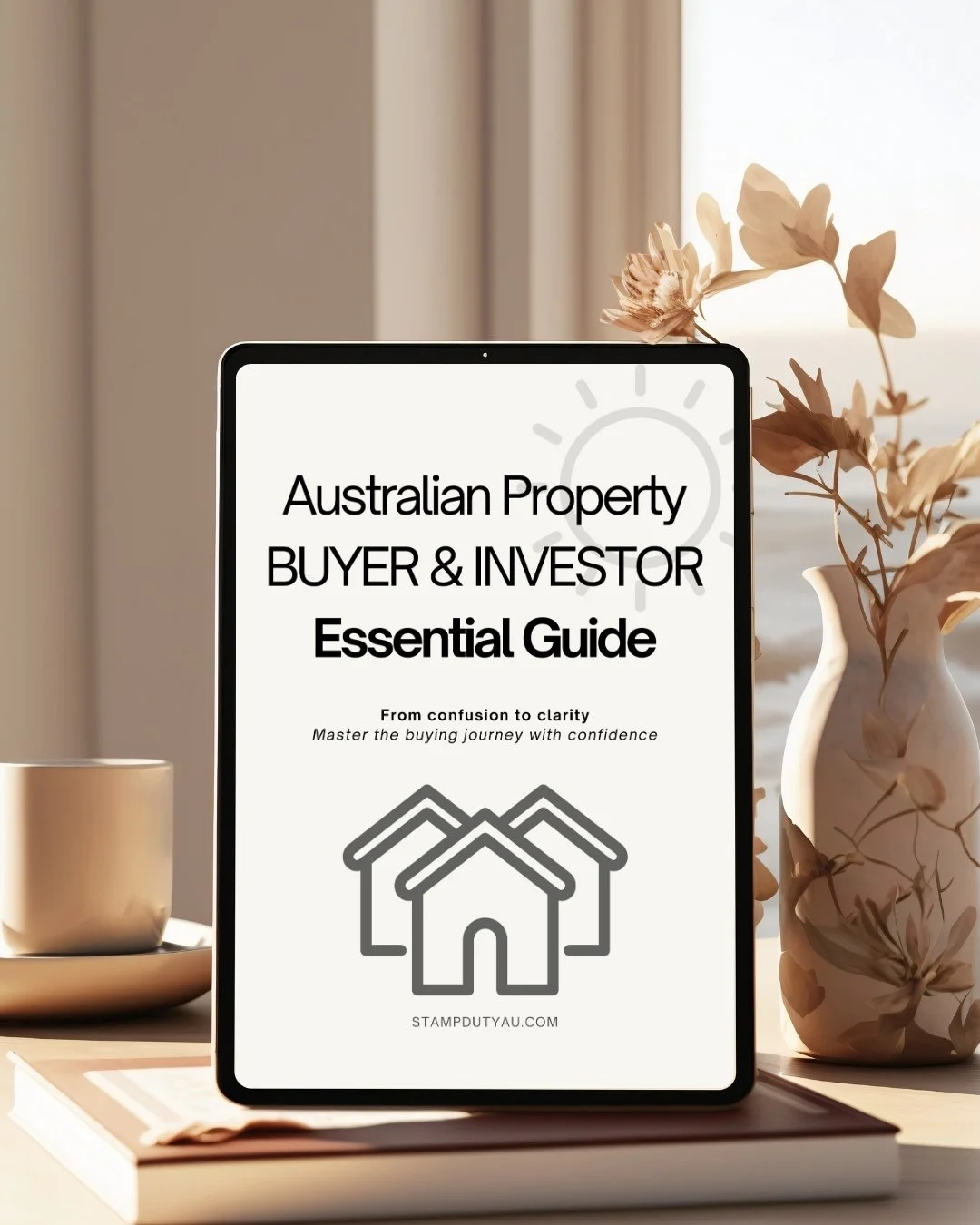Frequently Asked Questions
Property Purchaser FAQ
Q1. What is stamp duty (Transfer Duty)?
Stamp duty also called transfer duty is a state or territory tax payable when you buy property in Australia. This applies whether you are buying a home, land, or a investment property.
Q2. Who has to pay stamp duty?
Almost all buyers must pay: including owner-occupiers, investors, and foreign buyers — unless you qualify for an exemption or concession by the government.
Q3. When is stamp duty due?
Payment is usually required within 30 days of settlement or contract signing, depending on your state or territory’s rules.
Q4. How is stamp duty calculated?
Each state and territory use a sliding scale. Different portion of the property price is taxed at different rates.
Q5. Do first-home buyers receive discounts?
Yes. Most states offer partial or full exemptions up to a certain price if you meet eligibility criteria.
Q6. Does stamp duty differ between states?
Yes. Rates, thresholds, and concessions vary by state and territory. Always check the latest rules where you’re buying.
Q7. Can I add stamp duty to my mortgage?
Some lenders allow you to borrow extra to cover duty, but generally it’s expected to be paid upfront separately.
Q8. Is stamp duty tax deductible?
No, it isn’t deductible. However, it forms part of your property’s cost when calculating capital gains tax.
Q9. How much is stamp duty on a $1 million home?
It depend on the state. For example, in NSW (2025–2026), owner-occupiers can expect to pay around $40,000–$45,000.
Q10. Do investors pay more duty than owner-occupiers?
Not necessarily. The main difference is that investors don’t qualify for first-home buyer concessions. Some states may apply surcharges to investment purchases.
Q11. Can I get a refund?
Refund is rare but possible. If a sale contract is cancelled, check with your specialists.
Q12. What happens if I don’t pay on time?
Penalties and interest charges apply, and your property transfer could be delayed.
Q13. Does stamp duty apply to vacant land?
Yes. Transfer duty is payable on vacant land as well as completed homes and units.
Q14. Do rates change every year?
Core rates don’t change annually, but surcharges, thresholds, and concessions are often updated.
Q15. Where can I check official rates?
Each state revenue office publish current rates on its website. See our “Revenue Office Links” section for details.
Australian Property Essential Guides
Gain insider knowledge and proven strategies from years of real-world experience. The Australian Property Buyer & Investor Essential Guide walks you through every stage of buying and investing — from choosing the right property to avoiding costly mistakes.
Foreign Buyer FAQ
Q1. Can foreign buyers purchase property in Australia?
Yes, but generally only new dwellings, off-plan properties, or vacant land. Foreigners cannot usually buy established (second-hand) homes unless specific exemptions apply.
Q2. Do foreign buyers need FIRB approval?
Yes. The Foreign Investment Review Board (FIRB) must approve most property purchase by non-residents or temporary residents before settlement.
Q3. What is FIRB application fee?
If you are a foreign person buying or investing in residential property in Australia, you must pay a assessment fee to the Foreign Investment Review Board.
Q4. What is the foreign buyer stamp duty surcharge?
Most states charge surcharge fee on top of normal stamp duty .
Q5. Do all states charge a foreign buyer surcharge?
No. NSW, VIC, QLD, SA, WA, and TAS charge surcharges. ACT and NT currently do not charge surcharge.
Q6. Can foreign buyers buy commercial property?
Yes, in many cases foreign buyers can invest in commercial property, but FIRB approval is still required.
Q7. Can a foreign buyer purchase property through an Australian company or trust?
Yes. But even if buying or invest through a company or trust, FIRB approval is usually required if foreign persons hold a significant interest. Check with your specialists.
Q8. Are FIRB fees refundable if my purchase does not proceed?
No. FIRB application fees are generally non-refundable, even if you withdraw or the purchase falls through .
Q9. What are the ongoing costs for foreign property owners in Australia?
In addition to stamp duty and FIRB fees, foreign owners may have to pay annual land tax surcharges in some state, plus normal rates, maintenance, and compliance costs .
